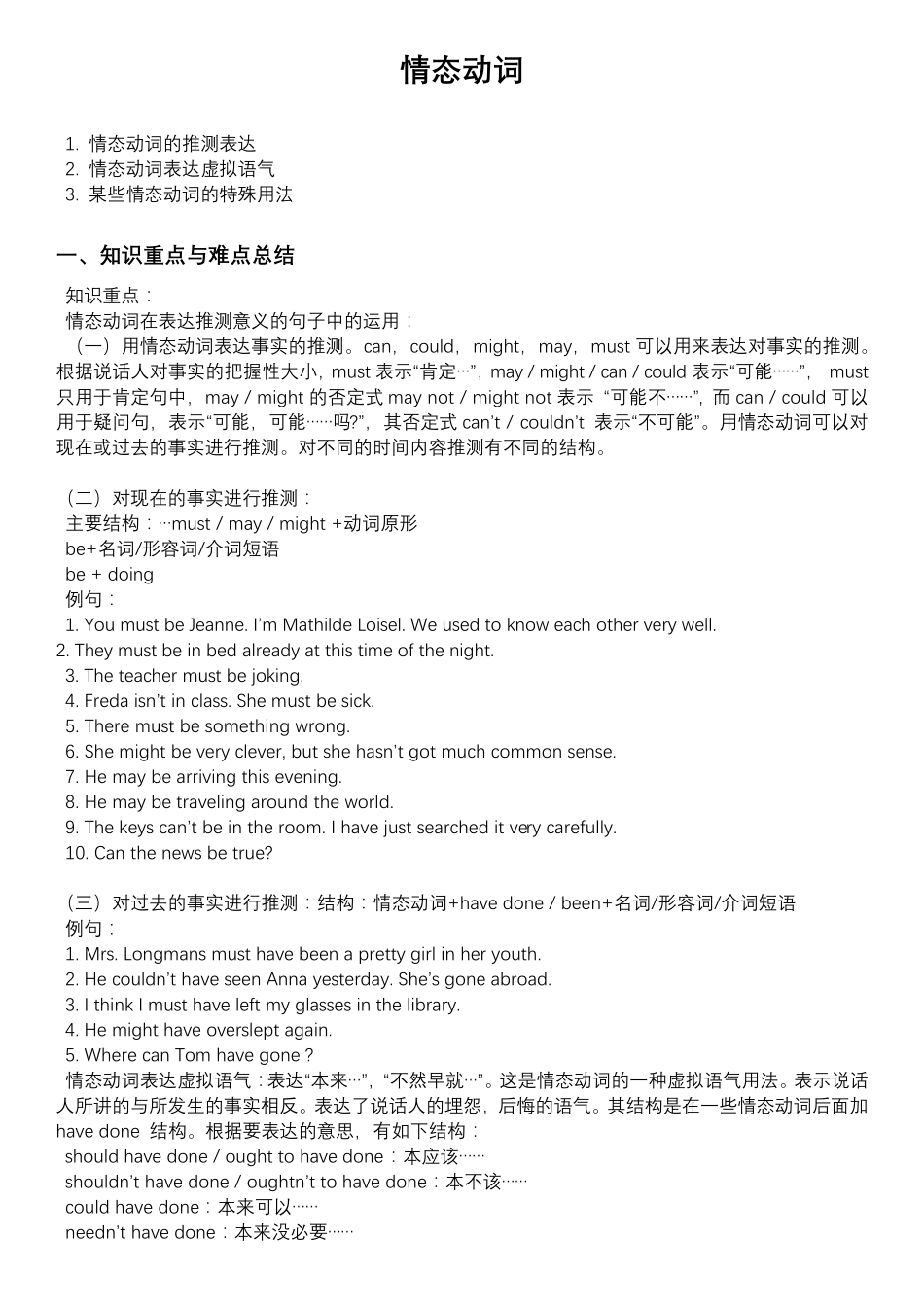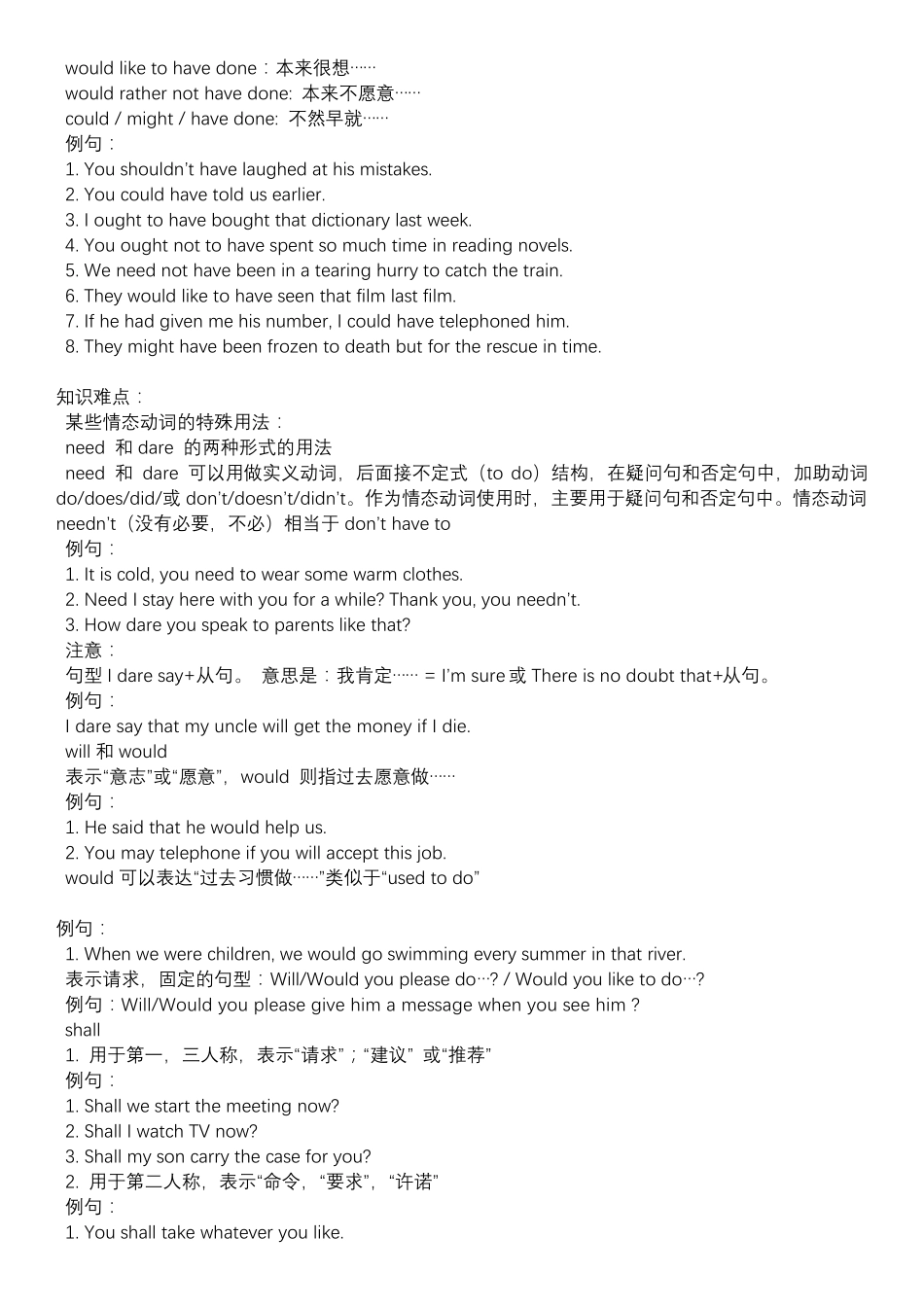情 态 动 词 1. 情态动词的推测表达 2. 情态动词表达虚拟语气 3. 某些情态动词的特殊用法 一 、 知 识 重 点 与 难 点 总 结 知识重点: 情态动词在表达推测意义的句子中的运用: (一)用情态动词表达事实的推测。can,could,might,may,must 可以用来表达对事实的推测。根据说话人对事实的把握性大小,must 表示“肯定…”,may / might / can / could 表示“可能……”, must只用于肯定句中,may / might 的否定式 may not / might not 表示 “可能不……”, 而 can / could 可以用于疑问句,表示“可能,可能……吗?”,其否定式 can’t / couldn’t 表示“不可能”。用情态动词可以对现 在或 过 去 的事实进 行 推测。对不同 的时 间 内 容 推测有 不同 的结 构 。 (二 )对现 在的事实进 行 推测: 主 要 结 构 :…must / may / might +动词原 形 be+名 词/形 容 词/介 词短 语 be + doing 例 句: 1. You must be Jeanne. I’m Mathilde Loisel. We used to know each other very well. 2. They must be in bed already at this time of the night. 3. The teacher must be joking. 4. Freda isn’t in class. She must be sick. 5. There must be something wrong. 6. She might be very clever, but she hasn’t got much common sense. 7. He may be arriving this evening. 8. He may be traveling around the world. 9. The keys can’t be in the room. I have just searched it very carefully. 10. Can the news be true? (三 )对过 去 的事实进 行 推测:结 构 :情态动词+have done / been+名 词/形 容 词/介 词短 语 例 句: 1. Mrs. Longmans must have been a pretty girl in her youth. 2. He couldn’t have seen Anna yesterday. She’s gone abroad. 3. I think I must have left my glasses in the library. 4. He might have overslept again. 5. Where can Tom have gone ? 情态动词表达虚拟语气:表达“本 来…”,“不然 早 就 …”。这 是 情态动词的一种 虚拟语气用法。表示说话人所 讲 的与 所 发 生 的事实相 反...


